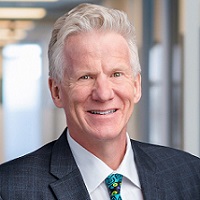 By Nick van Terheyden aka Dr Nick, Principal, ECG Management Consulting
By Nick van Terheyden aka Dr Nick, Principal, ECG Management Consulting
Twitter: @drnic1
Host of Healthcare Upside Down – #HCupsidedown
Technology has certainly delivered some incredible benefits to our world. Within reach of most people’s hand at any point during the day is a computer more powerful than the one that supported man’s trip to the moon and back. Our smartphone doubles as a camera, watch, calculator, compass, alarm clock, music player, book…you name it.
Additionally, smartphones and tablets increasingly offer us a means to communicate with our healthcare providers. During the first several months of the pandemic, telehealth was a lifeline for patients who were locked down and unable to see their doctors in person. Now there’s hope that digital health platforms can help mitigate access issues while giving patients more options to exchange data with providers and make better health decisions for themselves.
Episode NOW on Demand
But does all this data and technology help or hinder the delivery of equitable, widespread access to care? Despite the advances in the digital health space, those who lack the devices to access care—or access to the internet itself—have no way to enjoy the advantages offered by digital health platforms. COVID-19 has shined a light on inequities that existed long before the pandemic, and our growing reliance on digital health tools to access care has exacerbated the digital divide.
“Healthcare inequities and disparities are not necessarily a result of technology, but the data and the insights we’ve been able to garner give us a much deeper understanding of a problem that has been in existence for a very, very long time,” says Carladenise Edwards, Executive Vice President and Chief Strategy Officer of Henry Ford Health in Detroit.
On this episode we examine the risks posed by a widening digital divide and describes what Henry Ford Health is doing to ensure that the growth of digital health can benefit the entire community. Here are a few excerpts.
On the digital divide.
“Having devices such as cell phones, laptops, and iPads has absolutely exacerbated what’s called the digital divide. There are people who are in poor, rural, or urban communities where access to devices that are second nature to the upper middle class just doesn’t exist. And so when we actually had to pivot during COVID, there were significant [numbers of] people left behind.
“It is incredibly important not only to have access to the devices, but that the internet be available to everyone as health becomes more and more accessible virtually. And we need that right now, because there’s not enough of anything to go around in our healthcare industry. We should be looking at technology to enable us to have more access points. But at the same time, we have to be very cognizant of the risk associated with that if there’s not equity in one’s ability to get access to the internet and digital devices.”
How government and industry can collaborate to improve connectivity and access.
“I am adamant about public-private partnerships. This has actually been the story of my life. Early in my career, I worked in politics and for various administrations that believed the public sector and the private sector needed to come together to solve complex problems because it is in the best interest of our economy. Some people think we should do it because it’s in the best interest of humankind. Others think we should do it because it’s in the best interest of capitalism. I don’t really care why we do it—we just need to do it.”
A community focus in Detroit.
“Detroit attracted me because it’s in the ethos of the community to come together, to survive, to thrive, to try to solve complex problems, despite often being the underdog. People here are driven to come together to try to fix things. We also have some major corporations and industries that are thriving in this marketplace who feel compelled, for humanistic and compassionate reasons, to improve the well-being of the community, but also understand that that’s integral to capitalism. Ford Motor Company founded Henry Ford Health—you can’t have people buy or make cars if they don’t have a means of doing so and if they’re not healthy enough to go to work. There’s a direct correlation. Detroit is one of those places where folks get that you have to come together to solve these complex problems. You might not always agree on the why, but you definitely agree on the outcome you want to achieve.”
About the Show
The US spends more on healthcare per capita than any other country on the planet. So why don’t we have superior outcomes? Why haven’t the principles of capitalism prevailed? And why do American consumers have so much trouble accessing and paying for healthcare? Dive into these and other issues on Healthcare Upside/Down with ECG principal Dr. Nick van Terheyden and guest panelists as they discuss the upsides and downsides of healthcare in the US, and how to make the system work for everyone.
This article was originally published on the ECG Management Consulting blog and is republished here with permission.
